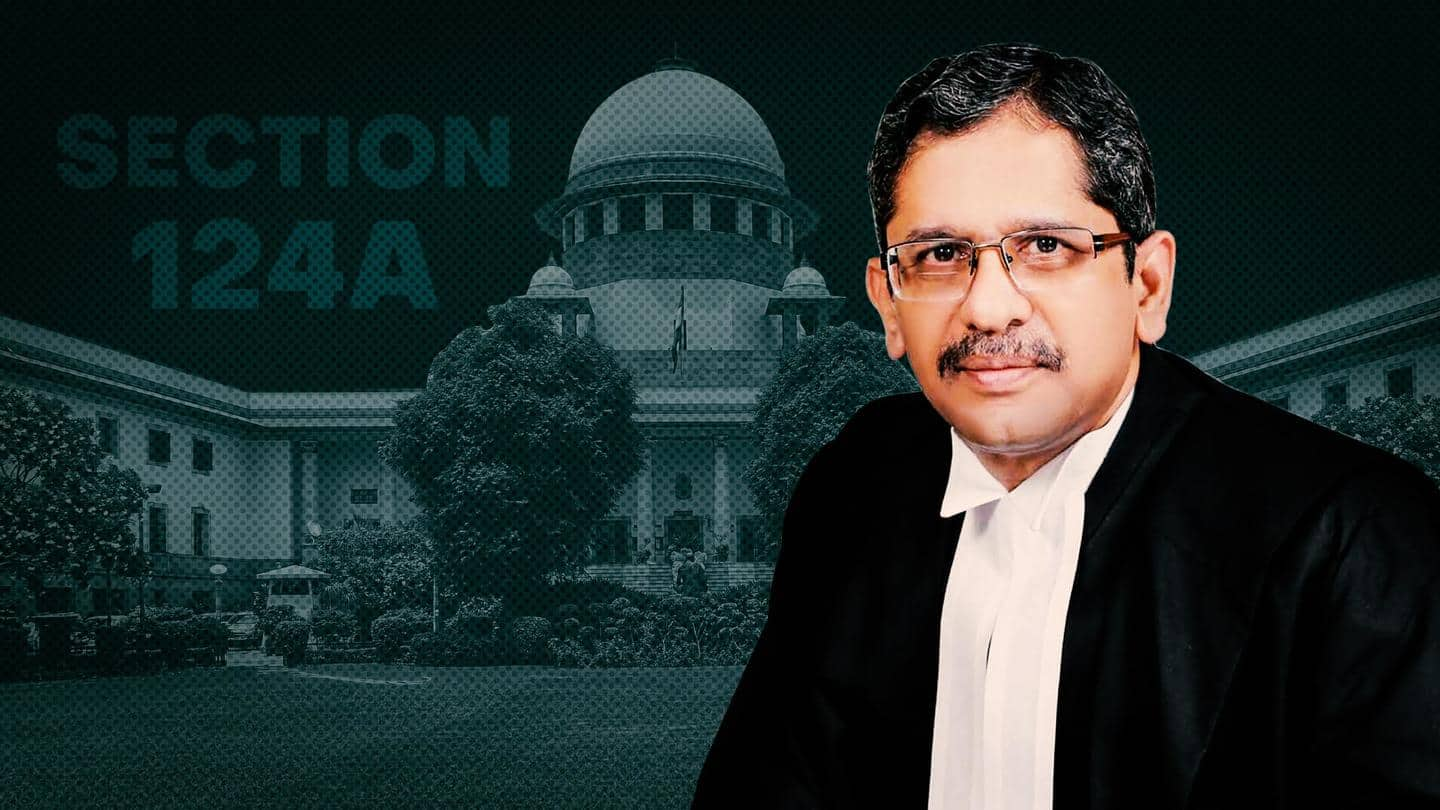
CJI terms sedition law 'colonial'; asks Centre about its necessity
What's the story
The Supreme Court on Thursday expressed concern about the rampant misuse of India's sedition law, Indian Penal Code 124(A).
A bench of the SC led by Chief Justice of India NV Ramana noted that such a law is "unfortunate" over seven decades after independence.
The CJI noted that the same law was used to suppress Indian independence activist Mahatma Gandhi and the entire movement.
CJI
'British used sedition law to suppress independence movement'
The SC was hearing a plea challenging the constitutional validity of Section 124A.
Expressing his reservation about the validity of the "colonial" sedition law, CJI Ramana posed a question to the Centre, "It was meant to suppress the freedom movement. The same law was used by British to silence Mahatma Gandhi, (Bal Gangadhar) Tilak, etc. Still is it necessary after 75 years of independence?"
Misuse
'There is misuse, but no accountability'
The CJI also compared the enormous power of the law with a carpenter being given a saw to cut just a tree, who instead "uses it to cut the entire forest."
Pointing out that vast powers under Section 124A can even be invoked to fix petty criminals, the CJI said, "Our concern is misuse of law and no accountability of executive agencies."
Information
'Cases still registered under unconstitutional Section 66A of IT Act'
CJI Ramana also drew attention to the fact that despite striking out Section 66A of the Information Technology Act as unconstitutional, there are thousands of cases registered under it. He also highlighted that the conviction rate is very low in sedition cases.
Centre
No need to repeal sedition law: Centre
Attorney General KK Venugopal—representing the Centre—responded to the CJI saying that IPC Section 124A need not be struck down and the court may lay down parameters to use the sedition law.
The CJI responded, "I'll look into it," and issued a notice to the Centre and tagged it with similar petitions.
Solicitor General Tushar Mehta accepted the notice on behalf of the Centre.
Petition
Sedition law creating chilling effect on freedom of speech: Petition
Army veteran retired Major-General SG Vombatkere had challenged the sedition law on grounds of it being "vague" and creating a "chilling effect on free speech."
It sought a fresh examination of Section 124(A), upheld in the 1962 judgment of Kedar Nath Singh v. State of Bihar.
It further said that fundamental rights in the Constitution are not to be read as isolated watertight compartments.
Information
Court had issued notice to Centre in April
In April, a three-judge Bench had also issued a notice to the Centre in a plea by two journalists challenging the validity of the provision for violation of freedom of speech. A similar petition by the Editors' Guild of India is also pending in court.
Allegations
Centre faces criticism over 'rampant' use of sedition law
The allegations of misuse of the sedition law to crush dissent have prevailed since Narendra Modi became Prime Minister in 2014.
Questions were also raised against its usage when student activists were put behind the bars for protesting against Citizenship Amendment Act using the same law.
The issue also drew public attention when activist Stan Swamy died while he was still on trial.